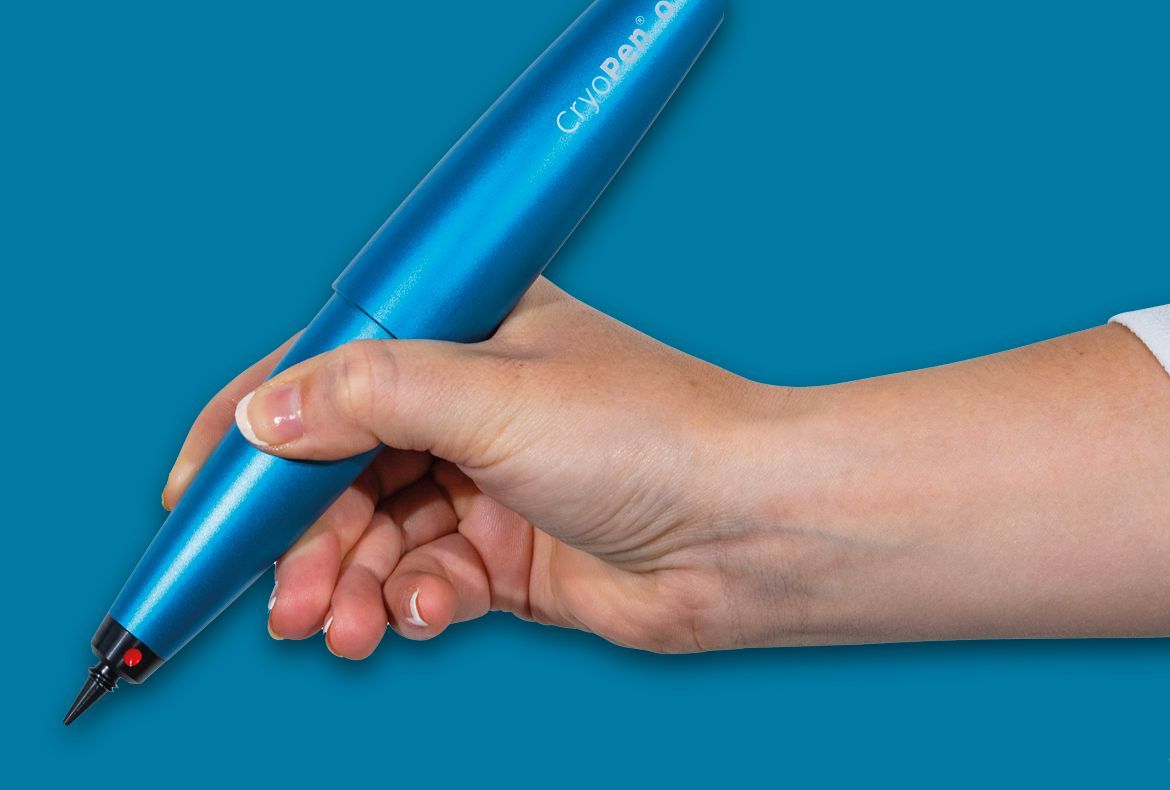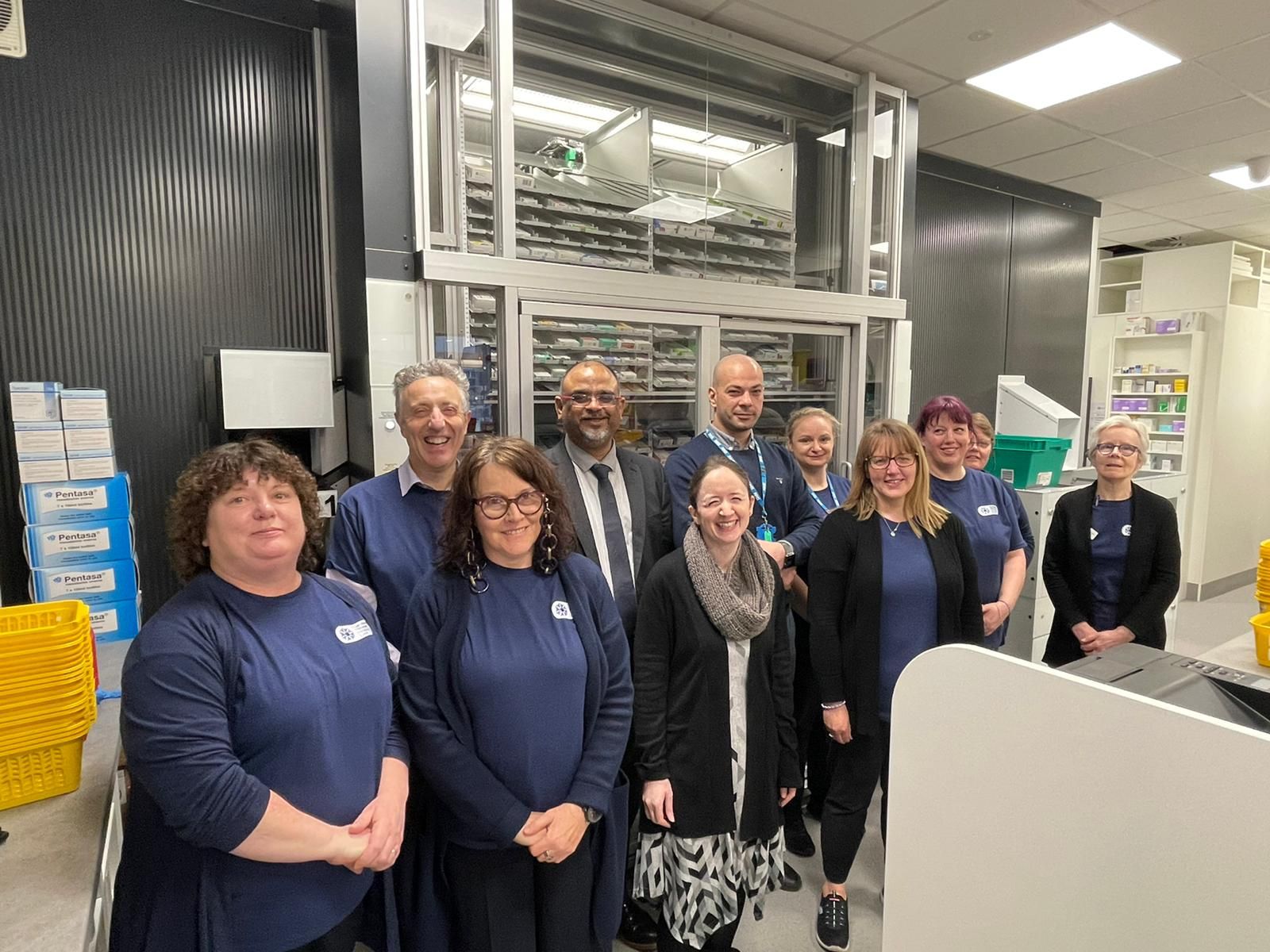Infected Insect Bites – Pharmacy First
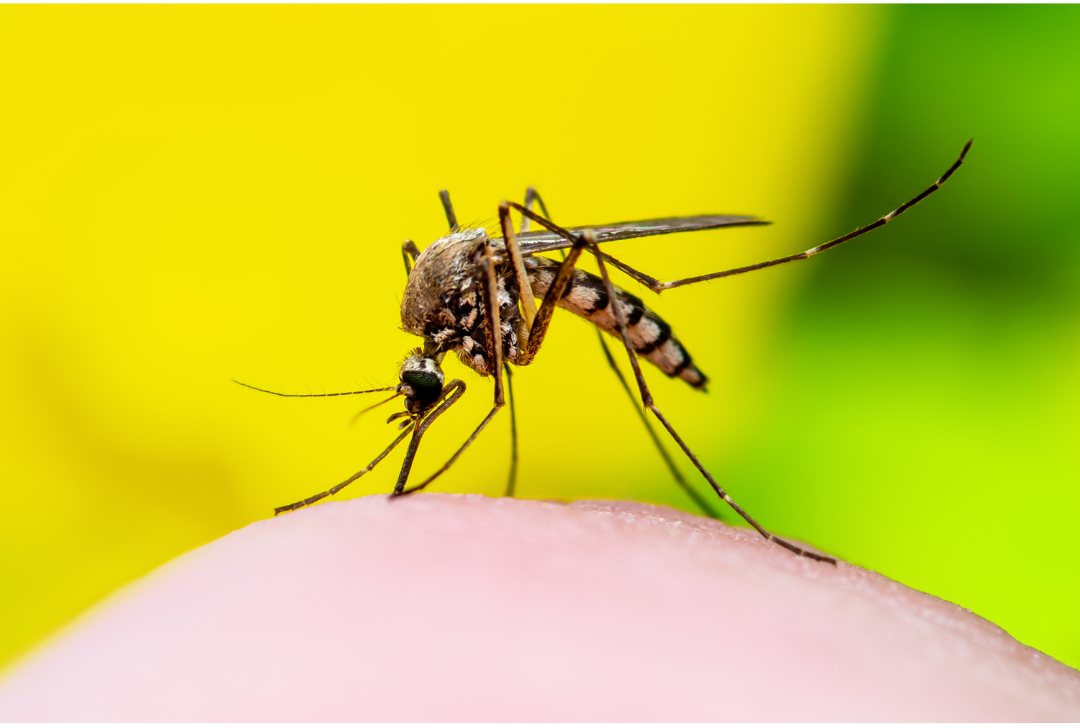
Insect bites? No big deal! We agree but in some cases the bites can become infected... and that’s a problem! In fact, conditions such as Lyme disease, Scabies or even Malaria are all potential complications arising from infected insect bites. Thanks to the new NHS Pharmacy First scheme, treating infected insect just got a whole lot easier! The treatment is available direct from local pharmacies including Letchworth Pharmacy. No need to see the GP! Infected insect bites can happen at any time of year but are far commoner during summer months.
In this blog, we’ll discuss the symptoms of the condition, the health complications that might occur, some treatments for the condition consider those at most risk of contracting an infected insect bite.
Symptoms of an Infected Insect Bite?
The symptoms of an infected insect bite can look pretty similar to the symptoms of a regular insect bite but there are some noticeable differences between an infected bite and one that is not: Read on!
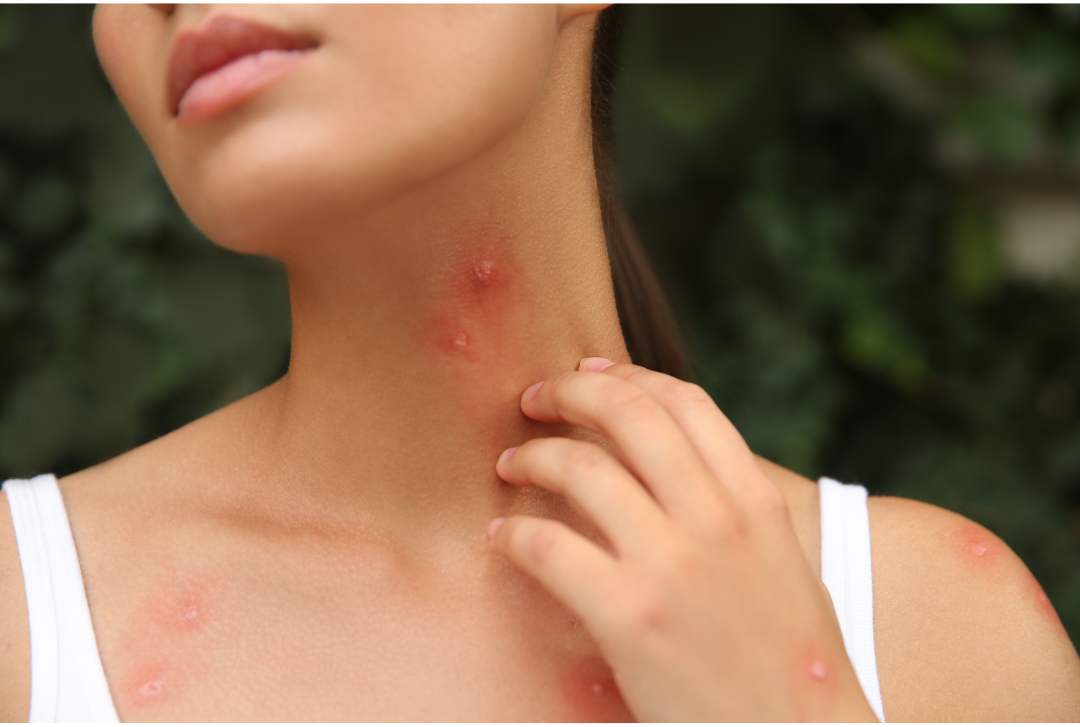
Below are some of the symptoms that you might experience from an infected insect bite.
- Pus: (infected insect bites usually create pus in or around the site of the bite)
- Swollen glands
- Swelling and redness around the bite
- Increased pain levels around the bite
- Fever
- Chills
Below are some symptoms you might experience with a regular insect bite:
- Blistering
- Bruising
- Itchiness
- Rashes
- Swollen bite
- Allergic reactions
N.B. Some people can experience severe allergic (anaphylaxis) reactions to insect bites which cause a host of severe, potentially life-threatening, symptoms. If you have a severe allergic reaction where you are struggling to breathe, start to feel confused or dizzy or even faint call 999 immediately.
In milder cases, call 111 or book an appointment to speak with our pharmacist under the NHS Pharmacy First scheme.
The symptoms of infected insect bites can overlap, making it difficult to identify. So, it's important to be vigilant when considering whether or not your insect bite is infected. We hope the symptoms we have listed will help.
So if you are concerned, or notice symptoms of what might be an infected insect bite, book an appointment to speak to our pharmacist under the FREE, NHS Pharmacy First service:
Health Complications of an Infected Insect Bite?
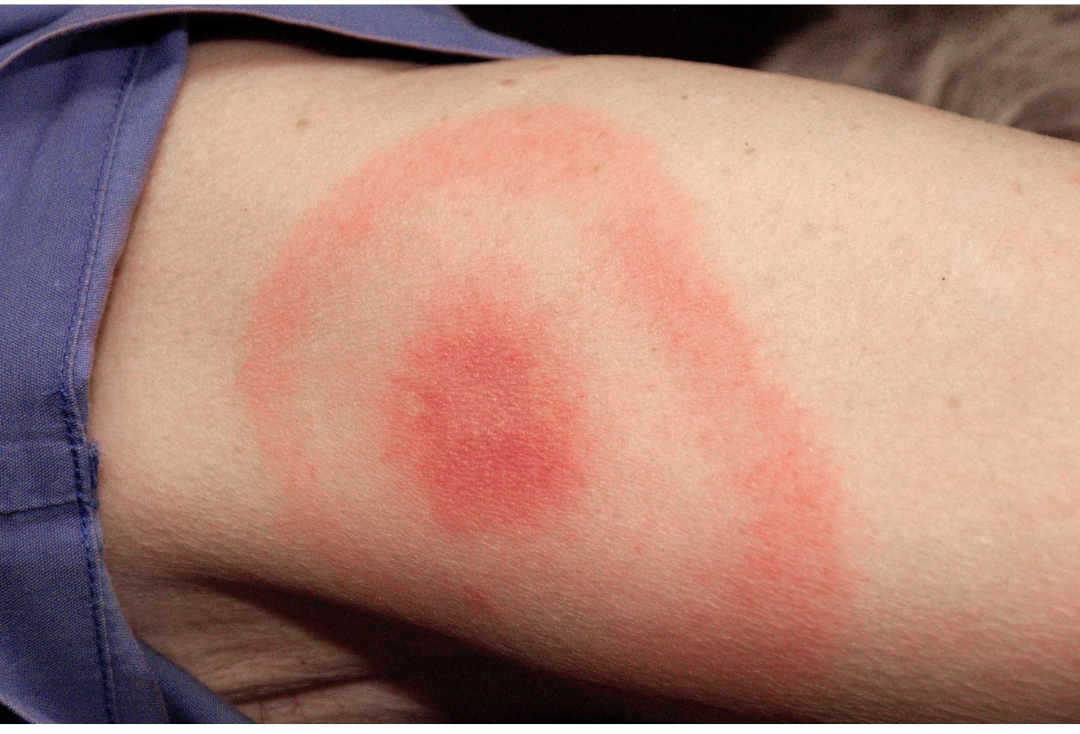
There’s a range of health complications that be may the result of an infected insect bite: Unlike other health conditions such as Shingles , an infected insect bite can result from a range of different bacteria.
Lyme disease: caused by an infected tick bite. Obvious symptoms include a circular rash around the bite location. Although these rashes usually appear between 1 – 4 weeks from the initial bite, they can appear up to 3 months after the bite. Other symptoms you might notice before the rash develops include a high temperature, headache, muscle or joint pain and excessive tiredness. This can be more easily treated if caught early thus. If you notice these symptoms contact your GP or call 111.
If you are unsure whether you have an infected insect bite, just book an appointment to speak to our pharmacist under the free NHS Pharmacy First scheme. It will put your mind at rest:
Scabies is an unpleasant complication that can occur due a skin infection of mites. The mite will burrow and lay eggs under the skin causing intense itchiness and a rash. This complication is most common in tropical countries. However, scabies does occur in the UK population. The most obvious symptoms of scabies are severe itchiness and a raised rash or spots. Left untreated, scabies can lead to more significant health problems such as sepsis (the infection spreads vis the bloodstream) heart disease or even kidney problems. Thankfully severe complications like those listed are rare. Treatment for Scabies usually includes prescription creams or oral medications in more severe cases. Once treatment starts itchiness typically gets worse for the initial couple of weeks. If you believe you have scabies book an appointment to speak to your GP or call 111. Or book an appointment under Pharmacy First and speak with our pharmacist about your infected insect bite:
Malaria though not found in the UK, if you are planning to travel abroad Malaria is a condition that you must be cautious about. Caused by a mosquito bite, it can be fatal. Symptoms include:
- a high temperature, sweats and chills
- headaches and feeling confused
- feeling very tired and sleepy (especially in children)
- feeling and being sick, tummy pain and diarrhoea
- loss of appetite
- muscle pains
- yellow skin or whites of the eyes
- a sore throat, cough, and difficulty breathing
Symptoms will start to appear 7 – 18 days after you’ve been bitten. Sometimes they can take longer to appear. If you believe that you might have contracted malaria you must book an urgent GP appointment or call 111 to have the condition treated as soon as possible (ASAP). Additionally, tell anyone you might have been travelling with so that they too can get help if they have contracted this condition.
On the other hand, if you are planning to go abroad to a place with a high risk of this condition you can book an appointment under our travel clinic service to get any appropriate jabs or health and prevention advice for this serious condition:
What kind of treatment is available for Infected Insect Bites?
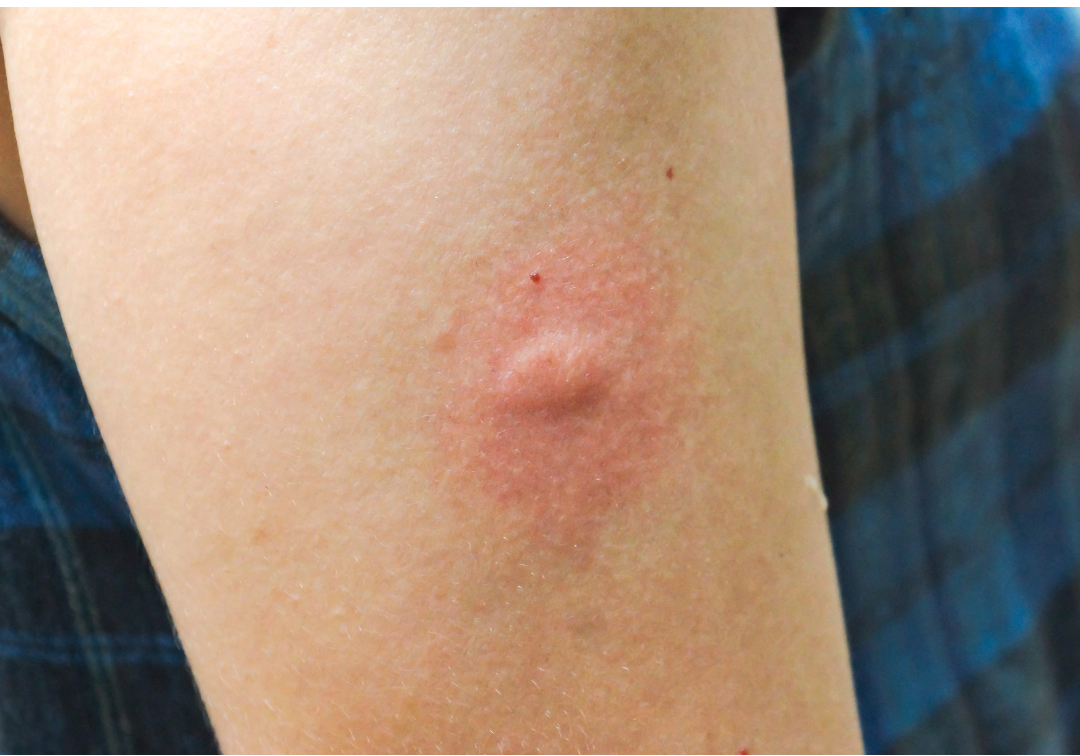
The treatment options for this condition can vary. But generally, a pharmacist might prescribe antihistamines, steroid creams, or painkillers to help treat the painful symptoms of an infected insect bite. These treatments cover a wider range of symptoms that a person will encounter regardless of the insect bite. When there is a more severe case of infected insect bite, our pharmacist might prescribe oral antibiotics. However, this will only be done in appropriate situations determined by the pharmacist.
In severe cases when a patient has an allergic reaction, although the pharmacist cannot provide treatment themselves; these people may be prescribed an adrenaline pen to help prevent any serious complications in the future. Opposite to this in mild cases or when it is unclear if the bite is infected, you can instead try some home remedies. Such as washing the affected area with soap and water, using a cold compress on the affected area, and avoiding scratching the area. Doing these may help resolve the symptoms of an insect bite and prevent further treatment. Although, if this does not solve the issue then book an appointment to speak to our pharmacist under NHS Pharmacy first:
Who is at most risk of Infected Insect Bites?
Although we all might like to debate whether certain groups of people are at a higher risk of insect bites. There is no rational correlation between certain types of people and insect bites. Instead, there are only general rules directed towards anyone who is outside and worried about getting bitten.
Covering exposed skin when outside is an easy way to prevent insects from biting. Jeans are particularly effective at preventing bites on the legs. However, if it is not feasible to wear long-sleeved clothing (especially true when its summer) you can apply insect repellent (useful on hot days!). Some repellents might require you to reapply them throughout the day so follow the instructions carefully. If you have a fruit-bearing tree, ensure you regularly clear away any fallen fruit to prevent insects from gathering. Similarly, flowering plants often attract insects so keeping a reasonable distance can help lower the chance of an insect bite. Keeping doors and windows closed can help prevent insects from getting inside houses so lowering the chances of an insect bite. Finally, avoid spending prolonged time near water as mosquitos and horseflies are commonly found near bodies of water.
Conclusion
Insect bites are exceedingly common, but so long as they do not become infected will recover on their own. However, if they do become infected there is the potential to cause (serious) damage to your health. So be on the lookout for any of the symptoms we listed to prevent further health issues. As we’ve discussed, there is no “one” group of people at greater risk of developing an infection as the result of an insect bite. We are all at risk, particularly in the summer season. As a result, we should all take appropriate measures when spending time outdoors in nature. Wearing long-sleeved clothing items or insect repellent can greatly reduce the risk of a bite. However, in cases where they do happen, we have covered some home remedies you can try to help them recover. But if they don’t work, seek timely support through NHS Pharmacy First.
Learn more about Pharmacy First >
Pharmacy First to the Rescue???
Book an appointment to speak to our pharmacist under the FREE, NHS Pharmacy First service:



